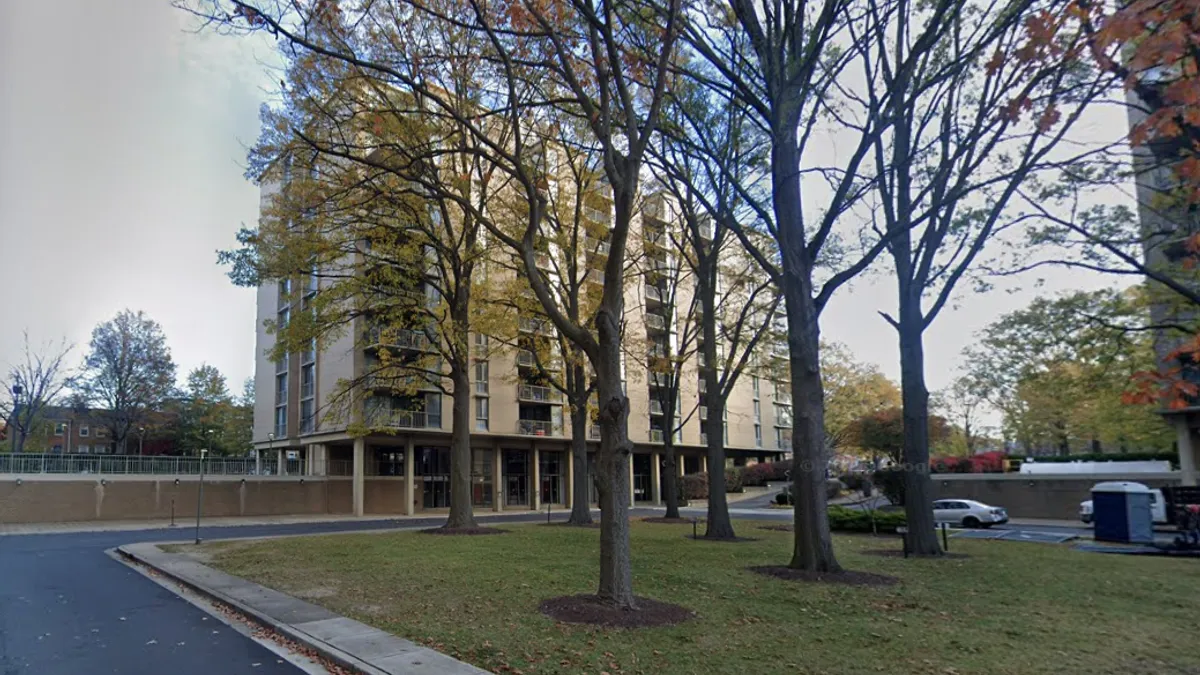A unanimous FCC ruling last month would ban broadband providers such as Cox Communications and Spectrum from entering into exclusive revenue-sharing agreements with multi-tenant buildings. The decision was intended to encourage competition and give residents who live in those buildings more options, but the change could mean lost revenue and logistical headaches for owners and operators.
“No doubt, this is a big deal,” said Jason Lund, leader of technology and infrastructure at global real estate and investment management firm JLL. “Everyone who has these exclusive contracts has to figure out what it means to them financially and what they do now.”
The tens of thousands of contracts in place between multifamily operators and broadband suppliers across the country, all structured with different cost-sharing implications, provide “a small but important income stream for properties of all sizes,” said Kevin Donnelly, vice president for government affairs, technology and strategic initiatives for the National Multifamily Housing Council.
“Over time, providers have sought to reduce the amount of funds paid while offloading more and more of the infrastructure buildout and operations costs to property owners, so the existing partnership model that provides revenue and cost-share is incredibly important to the multifamily industry,” he said.
If adopted, the new restrictions — which are set to be published 30 to 60 days after the mid-February ruling and could still be appealed — would also require broadband providers to inform tenants about exclusive marketing arrangements with landlords on both existing and future contracts in “simple, easy-to-understand language that is readily accessible” and prohibit “so-called sale-and-leaseback arrangements that block competitive access to alternative providers” on contracts entered into after June 23, 2017.
Compliance will be required within 180 days for existing contracts and within 30 days for new contracts once the rule is published, presenting another challenge for operators, who will have to renegotiate contracts with countless providers, Donnelly said.
Mixed reaction
“One-third of the people in this country live in multi-tenant buildings where there often is only one choice for a broadband provider and no ability to shop for a better deal,” FCC chairwoman Jessica Rosenworcel said in a statement. “The [new] rules … will crack down on practices that prevent competition and effectively block a consumer’s ability to get lower prices on higher-quality services.”
The FCC already bans internet service providers from “entering into sweetheart deals with landlords that guarantee they are the only provider in the building,” Rosenworcel said, but she accused the industry of sidestepping those rules through “a complex web of agreements between incumbent service providers and landlords that keep out competitors and undermine choice.”
Rosenworcel elaborated on her statement during an event hosted by the University of Colorado Boulder a few days after the ruling, Fierce Wireless reported. “You move into that building, and you don’t have a choice,” she said. “That’s kind of perverse because, if you think about it, these are the densest living environments we have in this country. They’re the ones that are the most hospitable to competition and the infrastructure that produces it.”
Consumer Reports released a statement calling the ruling “welcome news,” citing a survey that found “accessible, reliable and affordable broadband continues to be out of reach for millions of Americans.”
But the NMHC and National Apartment Association issued a joint statement expressing disappointment, which said that “by nullifying existing, legal agreements between broadband providers and property owners, the order may very well discourage investment and harm deployment and maintenance of broadband networks, particularly in already underserved properties most in need of broadband deployment and modernization.”
NMHC’s Donnelly said the existing partnership model ensures delivery of reliable, high-speed broadband to renters, with recent industry survey data indicating that nearly 80% of multifamily properties are served by two or more providers.
“Where the broadband market is failing in the multifamily environment is in lower-income, affordable and smaller properties where broadband providers cannot or will not make the needed infrastructure investments to serve these properties and their residents,” he said. “Low-income and rural Americans are underserved, not because of contract terms, but because of the economics of extending and upgrading infrastructures.”
Bottom line
JLL’s Lund said the ruling could cost apartment owners money because broadband providers are likely to cut back on how much revenue they share with owners if they lose exclusive rights to buildings.
“If you know you’re going to be in a cutthroat battle, you’re not willing to share nearly as much revenue because your competitor’s going to get some of that revenue,” he said.
The amount of revenue at stake is hard to quantify because contracts vary from property to property, but broadband contracts make up a small percentage of multifamily properties’s revenue, Lund added. “This is just ancillary revenue, not a primary money maker,” he said.
Bringing in competing broadband providers could also create engineering issues, Lund said, creating the need for multiple cable plugs within each unit and “a whole new set of telecommunications and technology equipment coming into the property—wires, boxes, switches, repairmen drilling holes, new receptacles, new wiring, everything.” Tenants would get more options, but owners would end up with the same or less revenue from broadband providers “for all the hassle, all the extra holes drilled.”
What Lund finds most interesting is the ruling’s focus on fixed, wired telephone and multi-channel video programmers while excluding companies that provide wireless internet services, such as Verizon 5G Home Internet and T-Mobile Home Internet. As consumers are increasingly able to make calls and watch TV over Wi-Fi, expensive wiring to each unit will become irrelevant, he predicted.
“But we’re nowhere near that yet,” he added, “and this is going to cause a kerfuffle over the next five years, certainly, as the market reorients.”
Lund advises multifamily owners to start looking deeply into how the ruling will affect their business models and current provider agreements “because I think, directionally, this will happen. The final form is yet to be determined, but it’s pretty clear there’s bipartisan support for getting away from exclusivity."


















